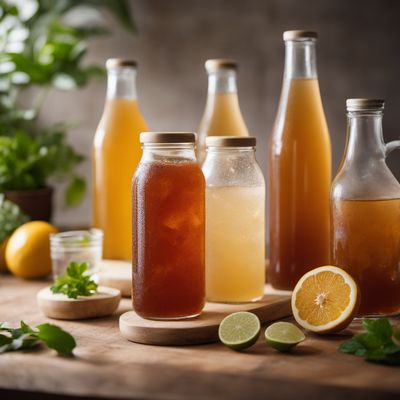
Ingredient
Isotonic and sport drinks
Revitalizing Hydration: Exploring Isotonic and Sport Drinks
Isotonic and sport drinks are typically clear or lightly colored beverages that have a balanced concentration of electrolytes and carbohydrates, providing quick hydration and energy replenishment. They often have a refreshing and slightly sweet taste, with a smooth and easy-to-drink texture. These drinks are commonly consumed during or after intense workouts, sports activities, or endurance events to maintain optimal hydration levels and support performance.
Origins and history
The concept of isotonic drinks originated in the field of sports science, with the aim of developing a beverage that could effectively replace fluids and nutrients lost through sweat during physical exertion. The first commercially available isotonic drink, Gatorade, was introduced in 1965 by a team of researchers at the University of Florida. Since then, isotonic and sport drinks have gained popularity worldwide, becoming a staple in the sports and fitness industry.
Nutritional information
Isotonic and sport drinks are low in calories and typically contain electrolytes such as sodium, potassium, and magnesium, along with carbohydrates for energy. They provide quick hydration and replenish essential nutrients lost during physical activity.
Allergens
Isotonic and sport drinks may contain allergens such as artificial flavors, colors, or sweeteners. It is important to check the label for any specific allergens before consumption, especially for individuals with known sensitivities or allergies.
How to select
When selecting isotonic and sport drinks, look for reputable brands that clearly state the electrolyte and carbohydrate content on the label. Opt for drinks that have a balanced concentration of electrolytes and carbohydrates, as excessive amounts can lead to digestive discomfort. Additionally, consider your specific needs, such as the duration and intensity of your physical activity, to choose the most suitable drink.
Storage recommendations
Isotonic and sport drinks should be stored in a cool, dry place away from direct sunlight. Once opened, they should be refrigerated and consumed within a specified time frame as indicated on the packaging. It is important to follow the storage instructions provided by the manufacturer to maintain the freshness and quality of the drink.
How to produce
Isotonic and sport drinks are typically produced by beverage manufacturers using specialized formulations that ensure the correct balance of electrolytes and carbohydrates. Amateur production of these drinks is not recommended due to the precise measurements and quality control required.
Preparation tips
To prepare isotonic and sport drinks, simply follow the instructions on the packaging, which usually involve diluting the concentrated drink mix with water. It is important to measure the correct amount of water and mix it thoroughly to ensure the desired isotonic concentration. Additionally, consider personal preferences and adjust the dilution ratio accordingly for a milder or stronger flavor.
Culinary uses
Isotonic and sport drinks are commonly used by athletes, fitness enthusiasts, and individuals engaging in intense physical activities. They are often consumed during or after workouts, sports events, or endurance activities to replenish fluids, electrolytes, and carbohydrates. These drinks can be enjoyed on their own or incorporated into various recipes such as smoothies or mocktails to add a refreshing twist.
Availability
Isotonic and sport drinks are widely available in supermarkets, convenience stores, and sports nutrition shops. They can also be purchased online through various e-commerce platforms. The availability may vary depending on the region and country.

